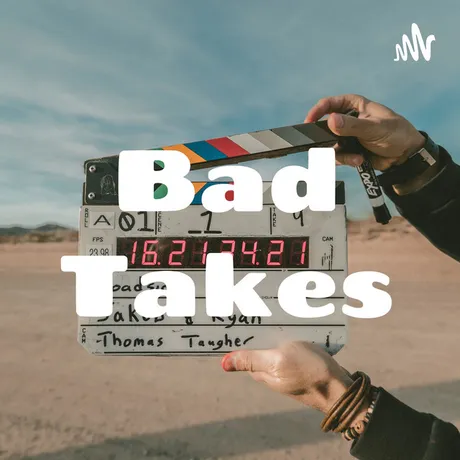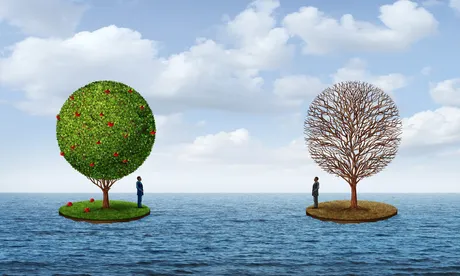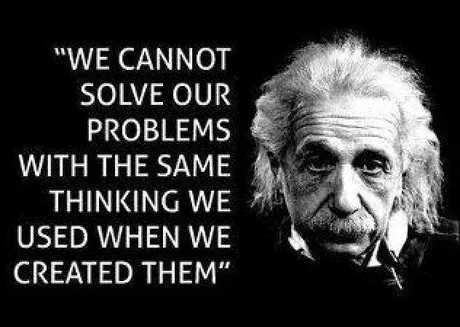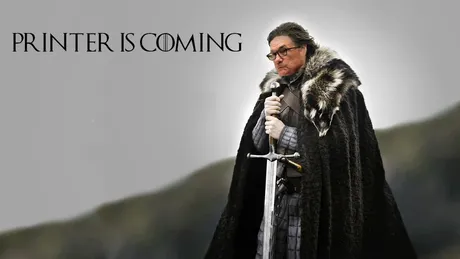
Identifying problems is not a skill.
Today I saw yet other ridiculous headline about how we can "solve world hunger" using however many billions of dollars. Today that number was $330B, with a frame of reference added in that this would only be like 7% of what the defense industry spends, aka the military industrial complex.
Of course this is absurd sentiment for many reasons. First of all when Elon Musk bought Twitter people were spewing the same nonsense. "You could have solved world hunger for a lower price." I believe the figure being tossed around was something like $10B, not that it matters.
Regardless of what the number quoted may be, it is blatantly incorrect and lacks any and all common sense. "Solving" world hunger is not a linear problem. We can't just add up all the hungry people in the world and calculate how much it would take to feed them, let alone translate that amount of food to an actual dollar cost. After all, these costs would change after the solution was implemented.
Basic economics
Shockingly, people can't eat money, so right off the bat presenting a solution using dollars as a measurement is at least a little bit flawed. I'm not saying there's a better way to do it but it is what it is. Pretending like we can print money out of thin air or divert it from the war machine without affecting any other part of the economy is a childish notion. War is a for-profit business, and altruism is not. Pretending like the domino effect isn't a real thing when making an argument is just a painfully novice way to go about it.

What would happen if we made rice free?
That makes sense, right? Rice is a very cheap staple. If anyone could get access to free rice that would potentially go along way to combat world hunger. Sounds good to me!
The problem with making rice free is that making rice free reduces the market value of rice to zero. Now the only way that rice farmers can turn a profit is if they get permission from the government. This in turn centralizes the entire worldwide production of rice. Whoever is subsidizing the rice and giving it away for free gets to pick and choose which farmers get the subsidy and which don't.
This in turn can create other problems like the transition of normal rice production to a GMO product. Many would say this is not a big deal because they are only modifying the genetic structure of the rice to get higher yields and whatnot. However, at this point in time with AI and gain-of-function research who knows what kinds of malicious intent or accidental outcomes could occur. Either way, this is not even close to the biggest sticking point when running this thought experiment.
Sybil attack?
How does one prevent an individual from taking more than their fair share of rice? This is where we begin to enter the realm of KYC and full on communism. The only way to go about this issue is to identify and track everyone all the time, which again in practice is a terrible terrible plan. Not only that, this 'solution' only works for the majority of the population, and everyone that has control over the system itself can easily hack and exploit it even if most people can't.
Population control?
Are we going to prevent citizens that acquire free rice from having babies? How else would we stop the population from booming out of control as the direct result of free food? How can we possibly say we can cure world hunger with $x amount of dollars if the solution actually makes the problem worse? Make it make sense.
An abundance of food in any environment always results in explosive exponential growth. What happens if the population of Earth suddenly doubled to 16 billion over the next decade because we "solved world hunger". What kind of other heinous problems would an expansion like that create?

Fighting fire with fire is a bad plan
If the problem is a shortage of food, the long-term solution almost certainly isn't just giving away food for nothing. We cannot solve these issues just by throwing money at them and calling it good. That is not how it works. Solutions that can't sustain themselves are not solutions at all.
Sustainability
Solving any kind of problem like this is going to involve sustainability and balance. Giving away resources is like putting a bandaid on a cut. It will help if the problem will go away on its own. The body heals itself. However, if the cut gets infected and festers the bandaid is completely worthless or can even make the issue worse.
Jobs
If we want to stop world hunger, isn't the solution obvious? We need to be giving people who need money good jobs. The workers create a lot of value to society and we pay them a lot of money. That's the optimal solution, not a horrifically centralized welfare state. Of course saying a thing and doing it are two completely different things; just like identifying a problem and solving a problem are wholly separated by complexity.
Technological deflation.
There certainly could be a scenario in the future where energy is near-free and robots do most of the work (including creating more robots). In a situation like that many products would be extremely cheap and most assets would be affordable (assuming you could get a job within such an environment).
However, this would equate to normal supply and demand rather than being a government subsidy. Free market solutions tend to sort themselves out if the product in question has many producers and consumers (aka real competition). More complicated problems arise when the product is extremely difficult to produce (like computer chips). Just ask Taiwan.

Conclusion: There is no shortage of resources.
The entire argument is a farce at the get-go. Everyone knows there's already more than enough food to feed everyone on the planet, just like their are more than enough homes to accommodate the homeless. The real issues are the ones rooted in logistics, sustainability, profitability, and distribution.
Giving away wealth isn't an optimal way to distribute resources, but rather a symptom of the disease itself. Such a tactic ironically increases centralization and solidifies complete dependency on the state. "Do what we tell you or you'll get no UBI payment this month." It's a toxic way to do business that will almost certainly pop its head up in the future as the value of people within the economy continues to be automated out of existence.
Return from King of Bad Takes: Solving World Hunger to edicted's Web3 Blog
